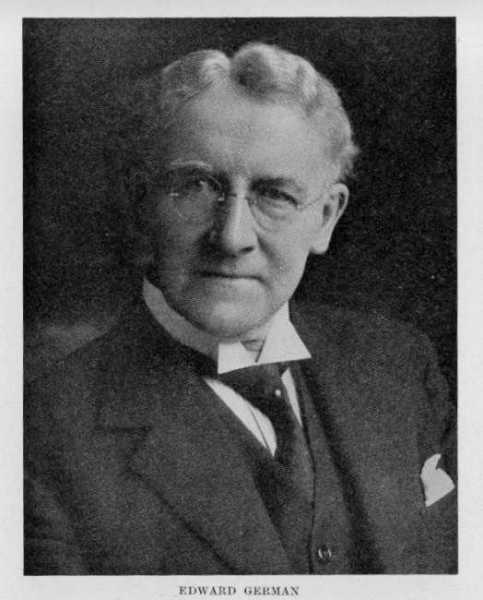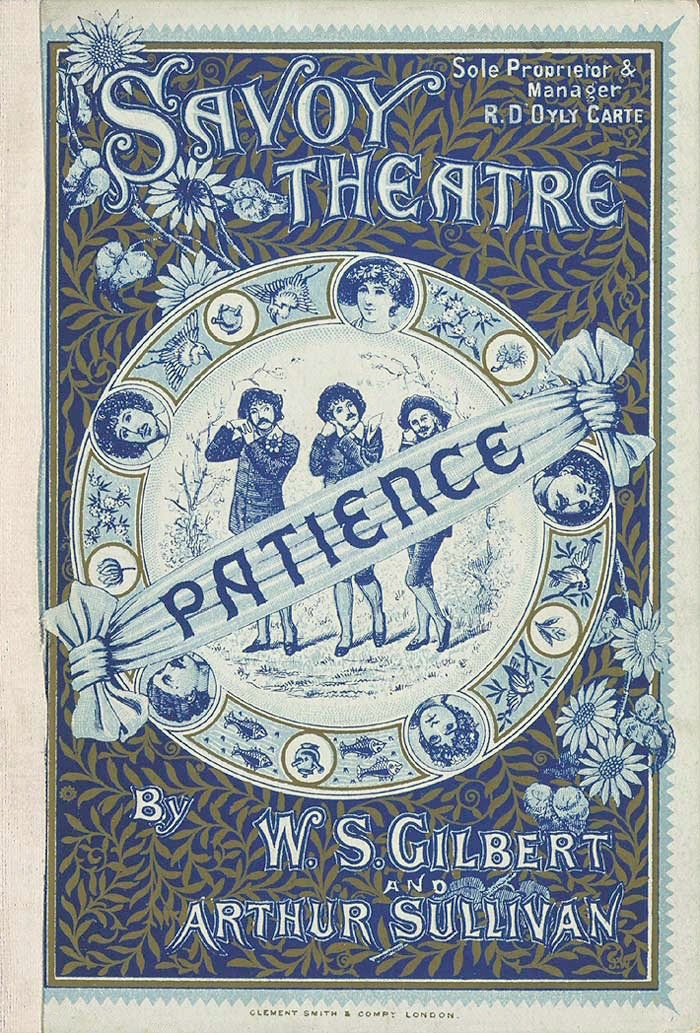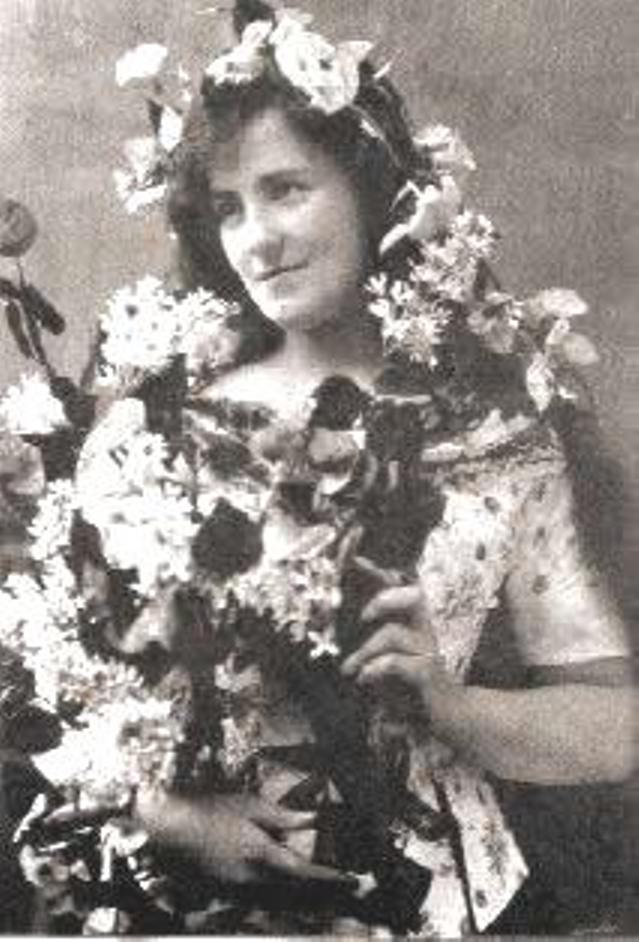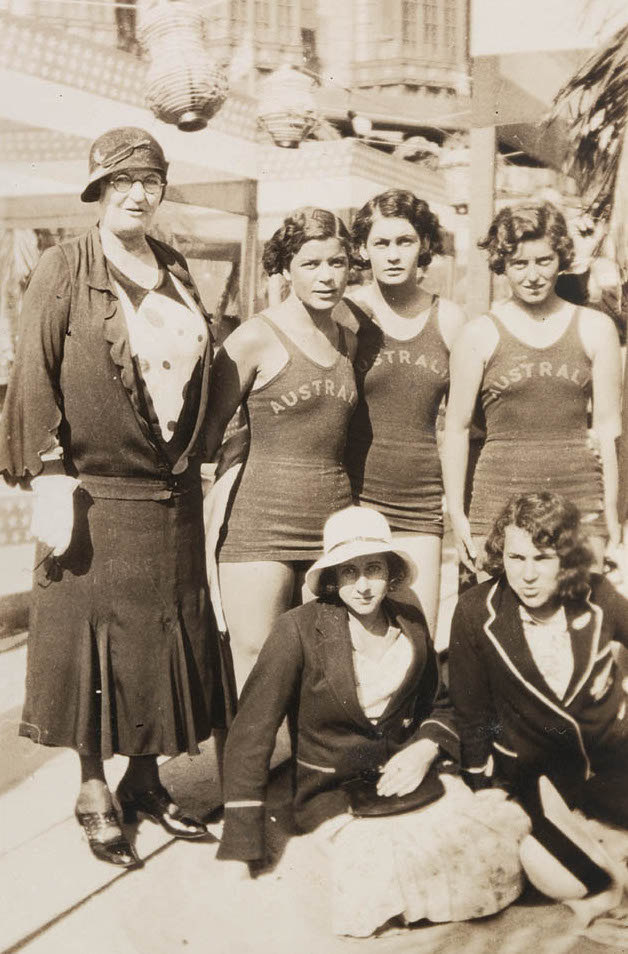|
The Rival Poets
''The Rival Poets, or the Love Charm'' is an English comic opera in two acts by Edward German to a libretto by W. H. Scott. The opera was first performed under the title ''The Two Poets'' at the Royal Academy of Music in London in July 1886. Background The opera, Edward German's first, was written while he was trying out various forms of composition during his continued studies of composition at the Royal Academy while a sub-professor. German called it an "opera de salon". It was written for just six soloists and two-piano accompaniment, over a three-year period, most of the writing taking place during holiday times. The opera is set in "an imaginary Anglo-Swiss republic," and the plot has been described as being similar to Gilbert and Sullivan's '' Patience''. The first act was premièred at the end of the Spring 1886 semester at the Academy, followed by a full performance that July, and another in St. George's Hall, Langham Place, near the end of the year. The piece was t ... [...More Info...] [...Related Items...] OR: [Wikipedia] [Google] [Baidu] |
Comic Opera
Comic opera, sometimes known as light opera, is a sung dramatic work of a light or comic nature, usually with a happy ending and often including spoken dialogue. Forms of comic opera first developed in late 17th-century Italy. By the 1730s, a new operatic genre, ''opera buffa'', emerged as an alternative to '' opera seria''. It quickly made its way to France, where it became ''opéra comique'', and eventually, in the following century, French operetta, with Jacques Offenbach as its most accomplished practitioner. The influence of the Italian and French forms spread to other parts of Europe. Many countries developed their own genres of comic opera, incorporating the Italian and French models along with their own musical traditions. Examples include German ''singspiel'', Viennese operetta, Spanish '' zarzuela'', Russian comic opera, English ballad and Savoy opera, North American operetta and musical comedy. Italian ''opera buffa'' In late 17th-century Italy, light-hearted m ... [...More Info...] [...Related Items...] OR: [Wikipedia] [Google] [Baidu] |
Edward German
Sir Edward German (17 February 1862 – 11 November 1936) was an English musician and composer of Welsh descent, best remembered for his extensive output of incidental music for the stage and as a successor to Arthur Sullivan in the field of English comic opera. Some of his light operas, especially '' Merrie England'', are still performed. As a youth, German played the violin and led the town orchestra of Whitchurch, Shropshire. He also began to compose music. While performing and teaching violin at the Royal Academy of Music, German began to build a career as a composer in the mid-1880s, writing serious music as well as light opera. In 1888, he became music director of the Globe Theatre in London. He provided popular incidental music for many productions at the Globe and other London theatres, including ''Richard III'' (1889), ''Henry VIII'' (1892) and ''Nell Gwynn'' (1900). He also wrote symphonies, orchestral suites, symphonic poems and other works. He also wrote a consi ... [...More Info...] [...Related Items...] OR: [Wikipedia] [Google] [Baidu] |
Libretto
A libretto (Italian for "booklet") is the text used in, or intended for, an extended musical work such as an opera, operetta, masque, oratorio, cantata or Musical theatre, musical. The term ''libretto'' is also sometimes used to refer to the text of major liturgical works, such as the Mass (liturgy), Mass, requiem and sacred cantata, or the story line of a ballet. ''Libretto'' (; plural ''libretti'' ), from Italian, is the diminutive of the word ''wiktionary:libro#Italian, libro'' ("book"). Sometimes other-language equivalents are used for libretti in that language, ''livret'' for French works, ''Textbuch'' for German and ''libreto'' for Spanish. A libretto is distinct from a synopsis or scenario of the plot, in that the libretto contains all the words and stage directions, while a synopsis summarizes the plot. Some ballet historians also use the word ''libretto'' to refer to the 15 to 40 page books which were on sale to 19th century ballet audiences in Paris and contained a ve ... [...More Info...] [...Related Items...] OR: [Wikipedia] [Google] [Baidu] |
Royal Academy Of Music
The Royal Academy of Music (RAM) in London, England, is the oldest conservatoire in the UK, founded in 1822 by John Fane and Nicolas-Charles Bochsa. It received its royal charter in 1830 from King George IV with the support of the first Duke of Wellington. Famous academy alumni include Sir Simon Rattle, Sir Harrison Birtwistle, Sir Elton John and Annie Lennox. The academy provides undergraduate and postgraduate training across instrumental performance, composition, jazz, musical theatre and opera, and recruits musicians from around the world, with a student community representing more than 50 nationalities. It is committed to lifelong learning, from Junior Academy, which trains musicians up to the age of 18, through Open Academy community music projects, to performances and educational events for all ages. The academy's museum houses one of the world's most significant collections of musical instruments and artefacts, including stringed instruments by Stradivari, Guarneri, an ... [...More Info...] [...Related Items...] OR: [Wikipedia] [Google] [Baidu] |
Gilbert And Sullivan
Gilbert and Sullivan was a Victorian era, Victorian-era theatrical partnership of the dramatist W. S. Gilbert (1836–1911) and the composer Arthur Sullivan (1842–1900), who jointly created fourteen comic operas between 1871 and 1896, of which ''H.M.S. Pinafore'', ''The Pirates of Penzance'' and ''The Mikado'' are among the best known.Davis, Peter G''Smooth Sailing'' ''New York'' magazine, 21 January 2002, accessed 6 November 2007 Gilbert, who wrote the libretti for these operas, created fanciful "topsy-turvy" worlds where each absurdity is taken to its logical conclusion; fairies rub elbows with British lords, flirting is a capital offence, gondoliers ascend to the monarchy, and pirates emerge as noblemen who have gone astray.Mike Leigh, Leigh, Mike"True anarchists" ''The Guardian'', 4 November 2007, accessed 6 November 2007 Sullivan, six years Gilbert's junior, composed the music, contributing memorable melodies that could convey both humour and pathos. Their operas have enj ... [...More Info...] [...Related Items...] OR: [Wikipedia] [Google] [Baidu] |
Patience (opera)
''Patience; or, Bunthorne's Bride'', is a comic opera in two acts with music by Arthur Sullivan and libretto by W. S. Gilbert. The opera is a satire on the aesthetic movement of the 1870s and '80s in England and, more broadly, on fads, superficiality, vanity, hypocrisy and pretentiousness; it also satirises romantic love, rural simplicity and military bluster. First performed at the Opera Comique, London, on 23 April 1881, ''Patience'' moved to the 1,292-seat Savoy Theatre on 10 October 1881, where it was the first theatrical production in the world to be lit entirely by electric light. Henceforth, the Gilbert and Sullivan comic operas would be known as the Savoy Operas, and both fans and performers of Gilbert and Sullivan would come to be known as "Savoyards." ''Patience'' was the sixth operatic collaboration of fourteen between Gilbert and Sullivan. It ran for a total of 578 performances, which was seven more than the authors' earlier work, ''H.M.S. Pinafore'', and the seco ... [...More Info...] [...Related Items...] OR: [Wikipedia] [Google] [Baidu] |
The Emerald Isle
''The Emerald Isle''; ''or, The Caves of Carrig-Cleena'', is a two-act comic opera, with music by Arthur Sullivan and Edward German, and a libretto by Basil Hood. The plot concerns the efforts of an Irish patriot to resist the oppressive "re-education" programme of the English, which has robbed the Irish of their cultural heritage. A quirky "Professor of Elocution" who is hired by the English to continue this "re-education" of the Irish switches sides to help the Irish defend their culture. Romantic complications cause a confrontation between the Irish patriots and the superstitious English at the supposedly haunted caves of Carric-Cleena, and disguises are employed to hold the English off; but the professor ultimately comes up with a solution that works out happily for all. The opera premiered at the Savoy Theatre on 27 April 1901, closing on 9 November 1901 after a run of 205 performances. The opening night cast included such Savoy regulars as Robert Evett, Walter Passmore, ... [...More Info...] [...Related Items...] OR: [Wikipedia] [Google] [Baidu] |
Duenna
A chaperone (also spelled chaperon) in its original social usage was a person who for propriety's sake accompanied an unmarried girl in public; usually she was an older married woman, and most commonly the girl's own mother. In modern social usage, a chaperon (frequent in British spelling) or chaperone (usual in American spelling) is a responsible adult who accompanies and supervises young people. By extension, the word chaperone is used in clinical contexts. Origin The word derives figuratively from the French word ''chaperon'' (originally from the Late Latin ''cappa'', meaning "cape"), which referred to a hood that was worn by individuals generally. A chaperone was part of the costume of the Knights of the Garter when they were in full dress and, probably, since the Knights were court attendants, the word ''chaperon'' changed to mean escort. An alternative explanation comes from the sport of falconry, where the word meant the hood placed over the head of a bird of prey ... [...More Info...] [...Related Items...] OR: [Wikipedia] [Google] [Baidu] |
Operas By Edward German
Opera is a form of theatre in which music is a fundamental component and dramatic roles are taken by singers. Such a "work" (the literal translation of the Italian word "opera") is typically a collaboration between a composer and a librettist and incorporates a number of the performing arts, such as acting, scenery, costume, and sometimes dance or ballet. The performance is typically given in an opera house, accompanied by an orchestra or smaller musical ensemble, which since the early 19th century has been led by a conductor. Although musical theatre is closely related to opera, the two are considered to be distinct from one another. Opera is a key part of the Western classical music tradition. Originally understood as an entirely sung piece, in contrast to a play with songs, opera has come to include numerous genres, including some that include spoken dialogue such as ''Singspiel'' and ''Opéra comique''. In traditional number opera, singers employ two styles of singing: ... [...More Info...] [...Related Items...] OR: [Wikipedia] [Google] [Baidu] |
English-language Operas
English is a West Germanic language of the Indo-European language family, with its earliest forms spoken by the inhabitants of early medieval England. It is named after the Angles, one of the ancient Germanic peoples that migrated to the island of Great Britain. Existing on a dialect continuum with Scots, and then closest related to the Low Saxon and Frisian languages, English is genealogically West Germanic. However, its vocabulary is also distinctively influenced by dialects of France (about 29% of Modern English words) and Latin (also about 29%), plus some grammar and a small amount of core vocabulary influenced by Old Norse (a North Germanic language). Speakers of English are called Anglophones. The earliest forms of English, collectively known as Old English, evolved from a group of West Germanic (Ingvaeonic) dialects brought to Great Britain by Anglo-Saxon settlers in the 5th century and further mutated by Norse-speaking Viking settlers starting in the 8th and 9th ... [...More Info...] [...Related Items...] OR: [Wikipedia] [Google] [Baidu] |
English Comic Operas
English usually refers to: * English language * English people English may also refer to: Peoples, culture, and language * ''English'', an adjective for something of, from, or related to England ** English national identity, an identity and common culture ** English language in England, a variant of the English language spoken in England * English languages (other) * English studies, the study of English language and literature * ''English'', an Amish term for non-Amish, regardless of ethnicity Individuals * English (surname), a list of notable people with the surname ''English'' * People with the given name ** English McConnell (1882–1928), Irish footballer ** English Fisher (1928–2011), American boxing coach ** English Gardner (b. 1992), American track and field sprinter Places United States * English, Indiana, a town * English, Kentucky, an unincorporated community * English, Brazoria County, Texas, an unincorporated community * Engli ... [...More Info...] [...Related Items...] OR: [Wikipedia] [Google] [Baidu] |
Operas
Opera is a form of theatre in which music is a fundamental component and dramatic roles are taken by singers. Such a "work" (the literal translation of the Italian word "opera") is typically a collaboration between a composer and a librettist and incorporates a number of the performing arts, such as acting, scenery, costume, and sometimes dance or ballet. The performance is typically given in an opera house, accompanied by an orchestra or smaller musical ensemble, which since the early 19th century has been led by a conductor. Although musical theatre is closely related to opera, the two are considered to be distinct from one another. Opera is a key part of the Western classical music tradition. Originally understood as an entirely sung piece, in contrast to a play with songs, opera has come to include numerous genres, including some that include spoken dialogue such as ''Singspiel'' and ''Opéra comique''. In traditional number opera, singers employ two styles of singing: ... [...More Info...] [...Related Items...] OR: [Wikipedia] [Google] [Baidu] |




.jpg)




